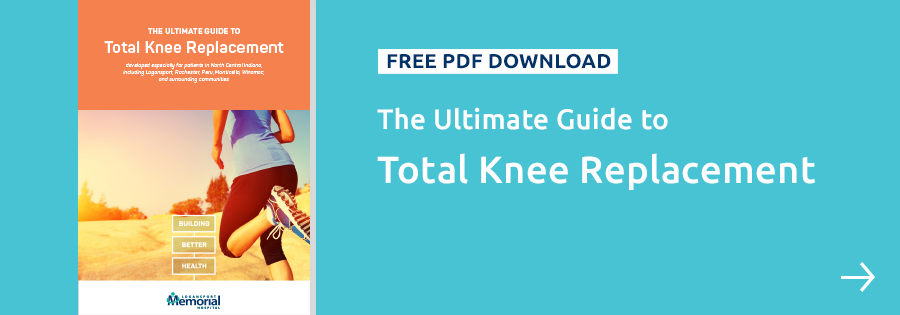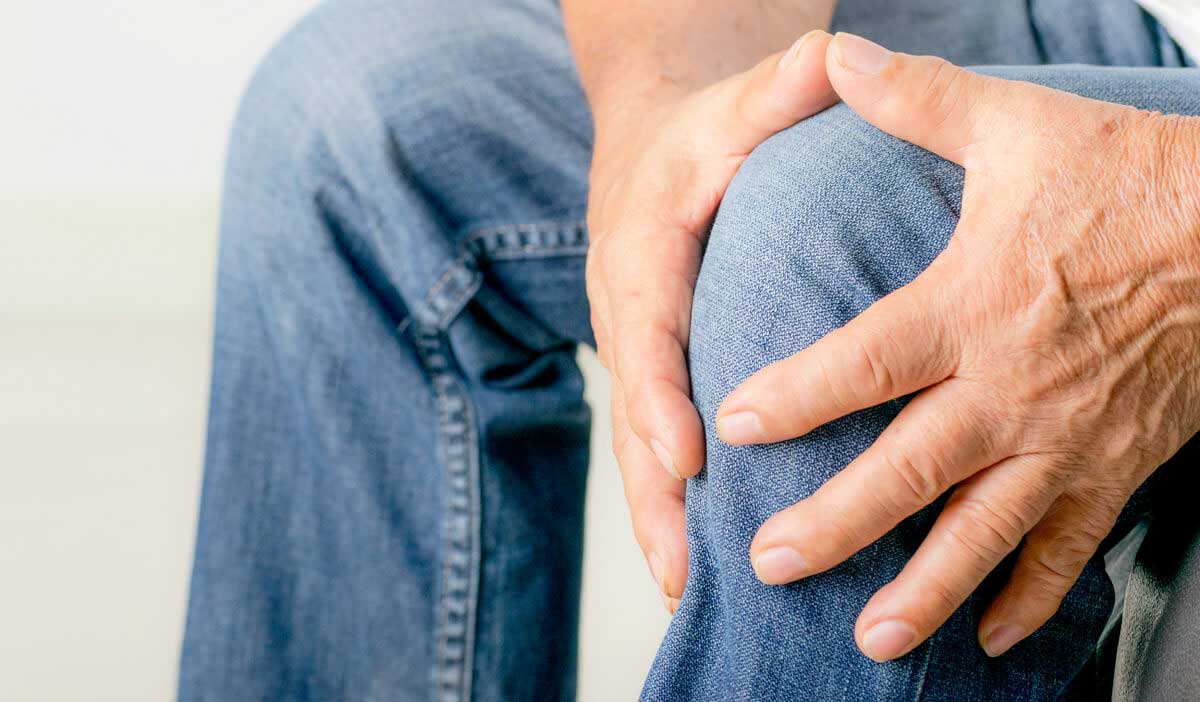Today, knee replacement is a very common procedure, but deciding to have total joint surgery remains a very personal one.
When you suffer from chronic knee pain, it makes doing even the smallest everyday activities seem unbearable, but you don’t have to live that way.
Patients who opt for for total joint replacement often find relief from surgery after they have exhausted options for treating their knee pain by making lifestyle changes.

Unfortunately, though it’s often an effective treatment when non-surgical options fail, knee replacement surgery isn’t for everyone.
Just having knee pain isn’t enough to qualify you for the procedure. You’ll need to work with your doctor to determine if you’re a good candidate for surgery.
Download our knee replacement guide
Recovery after knee surgery
Your doctor will work with you to create a customized plan for your rehabilitation after total knee replacement surgery to help you avoid complications and get back strength and range of motion so you can enjoy normal life again.
After surgery and once you wake up from the anesthesia, you’ll slowly begin to regain feeling in your legs.
Within the first 24 hours, your care team may encourage you to stand and take some steps with help from a walker if your pain is under control. Patients who put some weight on their new knees soon after surgery tend to recover more quickly.
Your doctor’s recommendations won’t just include post-operative tactics for recovery. They’ll also recommend practicing knee-strengthening exercises and making other lifestyle changes in advance of your surgery to help you prepare and help potentially facilitate a quicker recovery.
Your physical therapist will help guide you through this part of the recovery process and help you figure out how much pressure you can put on your new knee (and how soon).
They will assess and make their recommendations based on several factors, including:
- Whether you had surgery on one knee or both knees
- Which type of surgery you had
- How your surgery went
Factors that slow healing
Sometimes, the timeline for full recovery from knee surgery takes longer than expected for reasons that can’t be predicted.
However, for some patients—including older adults, smokers, and people who have other medical conditions—might have an increased likelihood of risks and find that their recovery from knee replacement surgery takes longer.
When knee replacement surgery recovery goes more slowly, though, your doctor and physical therapist will watch your condition closely and work with you to help you get you back to feeling like yourself again.
Learn about knee surgery benefits
How soon you’ll go home
Your doctor and physical therapist will work together to determine when you’re ready to leave the hospital, and this decision is usually made once your pain is under control and they see that you’re able to:
- Walk 150 to 300 feet with a walker or crutches
- Get in and out of bed on your own
- Get up and down stairs
- Bend your knee 90 degrees
- Understand everything you need to know to prevent injuring your knee
Planning your post-operative care is essential after knee replacement surgery if you want to avoid potential long-term problems.
Get EXPERT tips for making a strong recovery after HAVING knee surgery
Total joint patients find the most success when they have removed potential hazards in their home to prevent falls that can re-injure their new knee.
It’s also important to maintain strong muscles around your knee by sticking with recommended physical therapy exercises, taking appropriate steps to prevent infections, and scheduling regular check up appointments with your knee replacement surgeon and physical therapist.

Ready to start building better health and relieve your knee pain? Call 574.722.2663 to learn more about orthopedic care and treatments available at Logansport Memorial Hospital.




